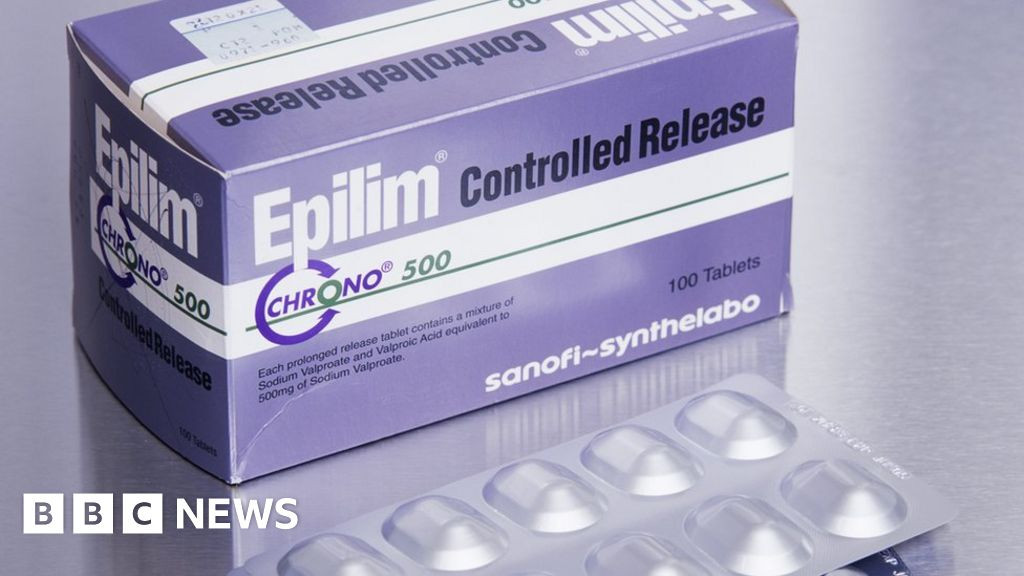The Scandinavian study found that around 5 out of 100 children born to men who were taking valproate at the time of conception had a neurodevelopmental disorder, compared with 3 out of 100 children when the fathers were taking lamotrigine or levetiracetam — two other drugs used to treat epilepsy.
The risk of neurodevelopmental disorders in children is much lower compared with mothers who take the valproate during pregnancy, the MHRA said it was advising males and any partners to “use effective contraception during valproate treatment and for at least three months after stopping valproate”.
The regulator also advises that patients should not donate sperm during valproate treatment and for three months after stopping the medicine.
Valproate and Pregnancy
The use of valproate by pregnant women has been associated with a high risk of congenital malformations and neurodevelopmental disorders in their children.
In 2018, the MHRA announced that the medicine must not be prescribed to women or girls of child-bearing potential unless they are on a pregnancy prevention programme (PPP).
In January 2024, new regulatory measures were introduced to reduce harms associated with valproate, including a requirement for two specialist doctors to sign off new valproate prescriptions.
Alison Cave, chief safety officer at the MHRA, commented: “Valproate is an effective medicine in the treatment of epilepsy and bipolar disorder.
“While the risk to a child is lower than the risk associated with a mother taking valproate in pregnancy, we recommend that men taking valproate and their partners follow the updated guidance and use effective contraception.”
Concerns Within The Epilepsy Community
Alison Fuller, director of health improvement and influencing at Epilepsy Action, said: “We know there are around 65,000 boys and men currently on sodium valproate in the UK. The measures are precautionary, meaning they will not require two signatories to stay on their medication. That said, they will still need to have an in-depth conversation with a healthcare professional.
She added that Epilepsy Action was aware the advice would raise questions within the epilepsy community.
“We are concerned people with epilepsy will feel confused at best, and very worried about what this means for their treatment at worst.”
Role of Pharmacists
Claire Anderson, president of the Royal Pharmaceutical Society, said: “Pharmacists already play a vital role in providing clear guidance and accompanying printed patient safety information on the safe use of valproate for women as part of the PPP.
“It is imperative to note that patients must not stop taking valproate without advice from a specialist, due to the importance of keeping their condition under control.
“Pharmacists are well placed to support patients with this new safety advice and will continue working with prescribers to ensure patient safety is maintained when taking valproate.”
A Shift in Prescribing Practices
In March 2024, a study published in JAMA Neurology reported that the declining use in women of valproate and carbamazepine, another epilepsy medicine, had led to a reduction in major congenital malformations in children.
Key Considerations
The MHRA’s advice underscores the evolving understanding of the potential risks associated with valproate, particularly for those seeking to start a family. While valproate remains a valuable treatment option for many, the need for proactive safety measures, including contraception and informed decision-making, is paramount. As the medical community continues to gather and analyze data, the guidelines surrounding valproate may evolve. Regular communication with healthcare professionals, including pharmacists, is crucial for individuals taking valproate to ensure they are informed about the latest recommendations and to make informed decisions about their treatment plan.
A Call to Action
The new advice emphasizes the importance of open communication between patients and their healthcare providers, particularly for those planning to start a family. The MHRA’s recommendations are designed to safeguard the health of both parents and children, emphasizing the need for both men and their partners to be fully informed about the potential risks associated with valproate. The MHRA’s advisory, coupled with the ongoing research, serves as a reminder that even seemingly established medical practices are subject to continual evaluation and refinement. The evolving nature of medical knowledge underscores the importance of staying informed about the latest safety recommendations and seeking professional guidance for any concerns or questions.

















